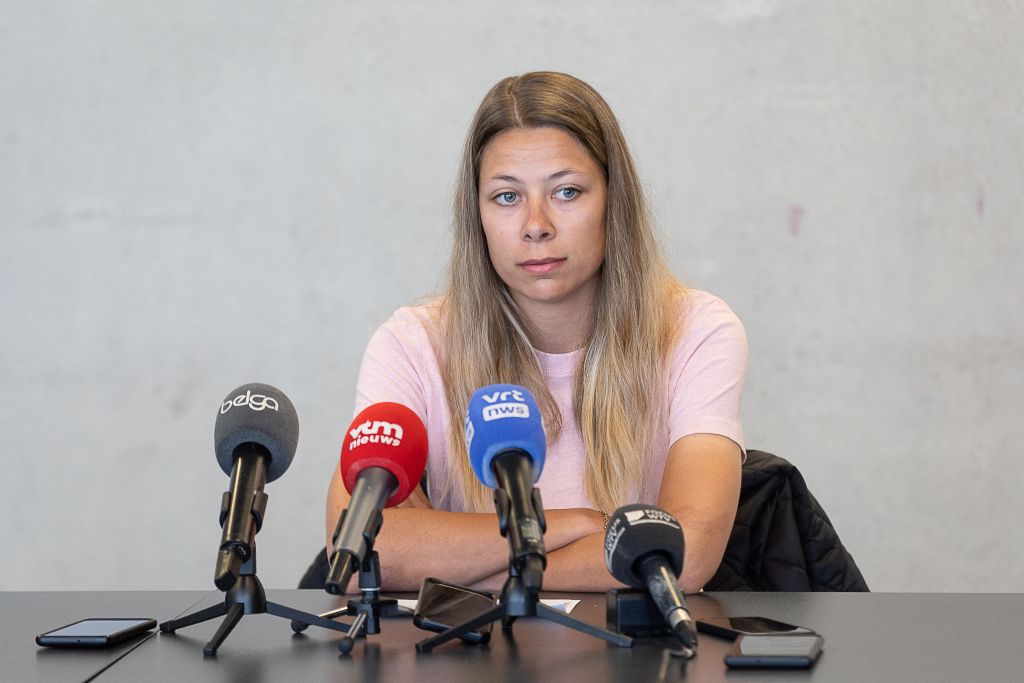Shari Bossuyt gives up doping defence, Olympic dream
Belgian says 'I don't have the strength or money' to appeal suspension

Belgian track and road racer Shari Bossuyt, who was expected to partner with Lotte Kopecky for the Madison at the Olympic Games in Paris, has announced she will not appeal a two-year suspension imposed by the French anti-doping agency AFLD for a doping positive.
In a lengthy post on Instagram, Bossuyt said she has a chance to appeal "but I simply don't have the strength or the money for this".
Bossuyt and Kopecky were world champions in the Madison in 2022, and Kopecky said during the World Championships in Glasgow racing the Madison at the Olympics in Paris would depend on the outcome of Bossuyt's case, and the development of younger riders who would replace her.
Bossuyt was racing at the Tour de Normandie, and after winning the final stage and finishing sixth overall, she tested positive for traces of the drug letrozole - the same cancer drug that led to Toon Aerts being suspended for two years.
Bossuyt has continually stated she is innocent. "I am a 23-year-old girl who happened to be able to make her hobby her profession. I am not a doper and have never considered this for any day. I will also keep repeating this until it all comes out one day," she wrote.
She tried to argue that she was the victim of contaminated food but could not prove the source, and found no recourse to avoid a suspension.
"No one seems to realize what an impact this has on someone's mental health. My Olympic dream is destroyed and having to walk around every day with the 'stamp' of a doper. It's almost unbearable. Fortunately, I find support from people who really listen to me, believe in me, and I also just keep doing sports because it does me good. I will prove that I will come back stronger!"
Get The Leadout Newsletter
The latest race content, interviews, features, reviews and expert buying guides, direct to your inbox!
Bossuyt went into her frustrations at length, railing against the lack of 'nuance' in the anti-doping rules.
"After some time of silence and patience, I wish to respond to the verdict of the AFLD. On 4 December I received the verdict from the AFLD regarding the proposal of my suspension. As expected, they propose a sentence of 2 years. They confirm and acknowledge the fact that the contamination was not intentional. But we cannot, as in the case of Toon Aerts, prove the source of the contamination exactly, as a result of which the legal framework does not allow them to give us further sentence reduction."
She said the proof would have to come from official bodies or laboratory studies. "Unfortunately, such studies cost tons of money and take a very long time. After consulting the food agencies, it turns out they don't even test for letrozole... No food safety risk or no knowledge that letrozole is used in Europe because it is banned here."
Studies in animal science have shown that letrozole can be used to synchronize the breeding of cattle as a substitute for estradiol, but any use in the European Union is illegal.
Letrozole is banned by WADA because it can be used to mask the feminizing effects of steroid use.
Bossuyt wrote that the AFLD accepted that contaminated milk could produce a doping positive, but would not budge on the suspension, and bemoaned the lack of support from the Belgian federation, anti-doping agency, the CPA riders' union and UCI.
"As an athlete, you are just completely on your own," she wrote.
"I now have the chance to still appeal but I simply don't have the strength or money for this. The feeling of having to fight a losing battle, the nights of sleeplessness due to continuous worrying and hurting me financially by having to spend another tens of thousands of euros on an already lost case made me decide to leave it at that."

Laura Weislo has been with Cyclingnews since 2006 after making a switch from a career in science. As Managing Editor, she coordinates coverage for North American events and global news. As former elite-level road racer who dabbled in cyclo-cross and track, Laura has a passion for all three disciplines. When not working she likes to go camping and explore lesser traveled roads, paths and gravel tracks. Laura specialises in covering doping, anti-doping, UCI governance and performing data analysis.